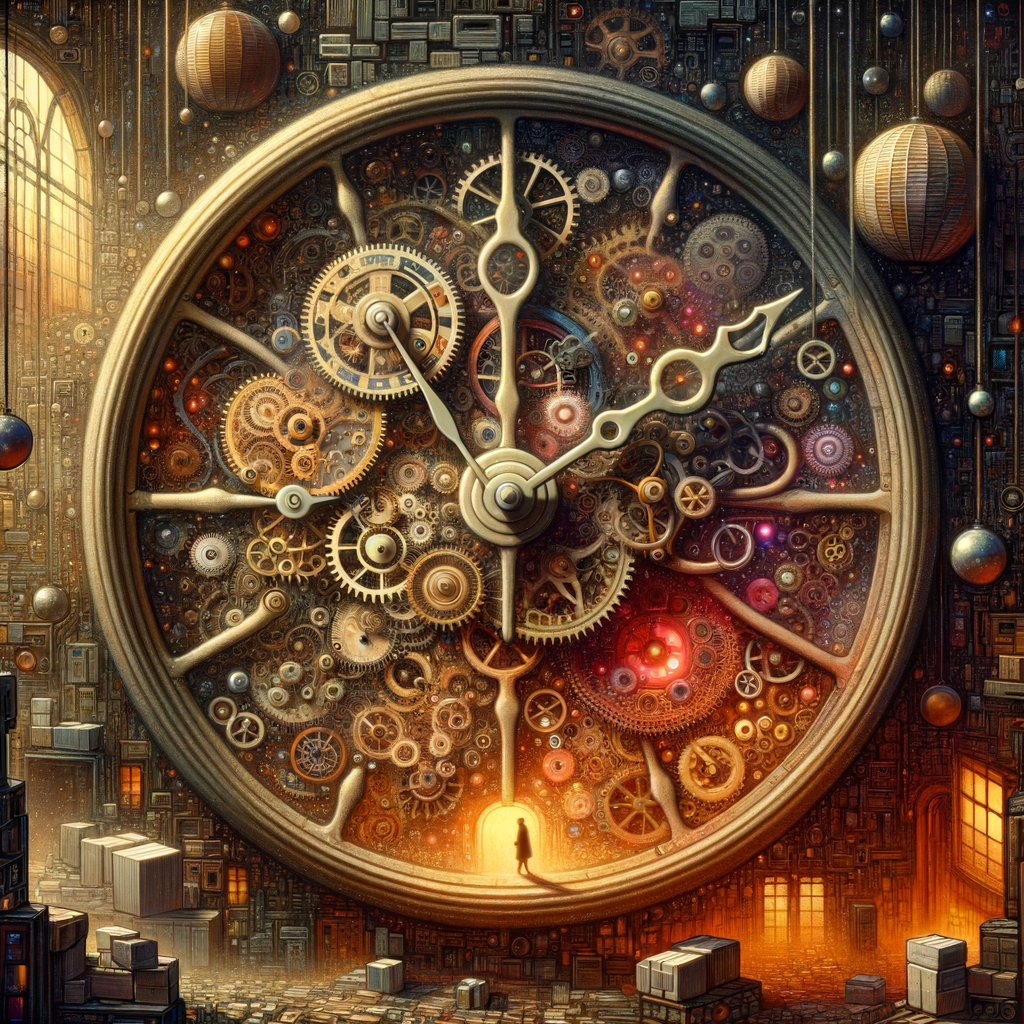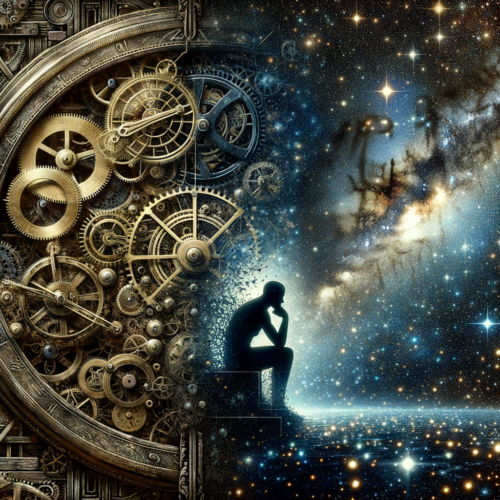A clock ticks. I listen to it, and my silence flexes sinuously between the systoles and diastoles that furrow the back of the immortal ether.
Outside, a mixture of voices can barely be heard: sleepy engines, wind chants, leaves and cartons rolling around scratching.
The wispy cogs of the clock are more tenacious tonight and scream their motion like baritones on stage.
I don’t get bored, nor do I sink into enjoyment. At times, without undue difficulty, I even manage not to think, though I immediately realize I am painting that emptiness with the very words stolen from it.
Then, when my ears have grown tired, I gaze to a tiny spot. It is red, made, in turn, by millions of spheres jumping into the void without even greeting relatives.
What light could ever be grasped if nature had been more humane? Oceans of waves, embraced before the journey, lost in themselves like sand among the golden dunes?
What about us? Motionless, breathless, and powerless, staring like demented at the revolt of the last slaves.
A clock ticks. I listen to it.
Now, tell me, where should I look for the soul that was once mine? Under the skin? Or perhaps among the tiny cogwheels biting each other with unconditional lust?
Video
Brief historical note on the evolution of the clock
The origin of clocks dates back to the early 16th century when they were first invented in Europe. Early examples of clocks were large and bulky, worn as pendants, or carried in pockets because of their size. The first portable clock was created by Peter Henlein in Germany around 1505. This invention revolutionized timekeeping and laid the foundation for developing smaller, more wearable watches.
Over the centuries, watchmaking has evolved, with Swiss watchmakers such as Abraham-Louis Breguet and Patek Philippe at the forefront of craftsmanship and innovation. These master watchmakers introduced technical inventions such as the self-winding mechanism, the chronograph, and the tourbillon, which significantly improved the precision and functionality of watches.

Watchmaking has a rich history, with renowned manufacturers such as Patek Philippe, Rolex, and Omega known for their craftsmanship and precision. These watchmakers have set quality watch standards and become iconic industry brands.
Throughout history, watchmakers have introduced innovative technical inventions to improve the functionality of watches. These advances have revolutionized the watchmaking industry, from the invention of the spring to the development of automatic movements and chronograph functions. Today, watches are functional timepieces and elegant accessories that reflect centuries of craftsmanship and innovation in watchmaking.
Time, according to philosophy and psychology
Time measurement holds profound philosophical and psychological significance in our lives. Philosophically, time serves as a fundamental concept that shapes our understanding of existence and reality. Philosophers throughout history, such as Aristotle and Kant, have pondered the nature of time and its relationship to human consciousness and experience. Time measurement allows us to organize our lives, set goals, and reflect on the past while planning for the future.
Psychologically, our perception of time influences our behavior, emotions, and cognitive processes. How we measure time affects our sense of urgency, patience, and overall well-being. Studies have shown that our perception of time can impact decision-making, memory, and mental health. Time measurement helps us navigate our daily lives and plays a crucial role in shaping our identities and relationships.
In conclusion, understanding the philosophical and psychological aspects of time and its measurement can provide valuable insights into human nature and the complexities of our existence.
If you like the poetic prose, you can always donate to support my activity! One coffee is enough! And don’t forget to subscribe to my weekly newsletter!


